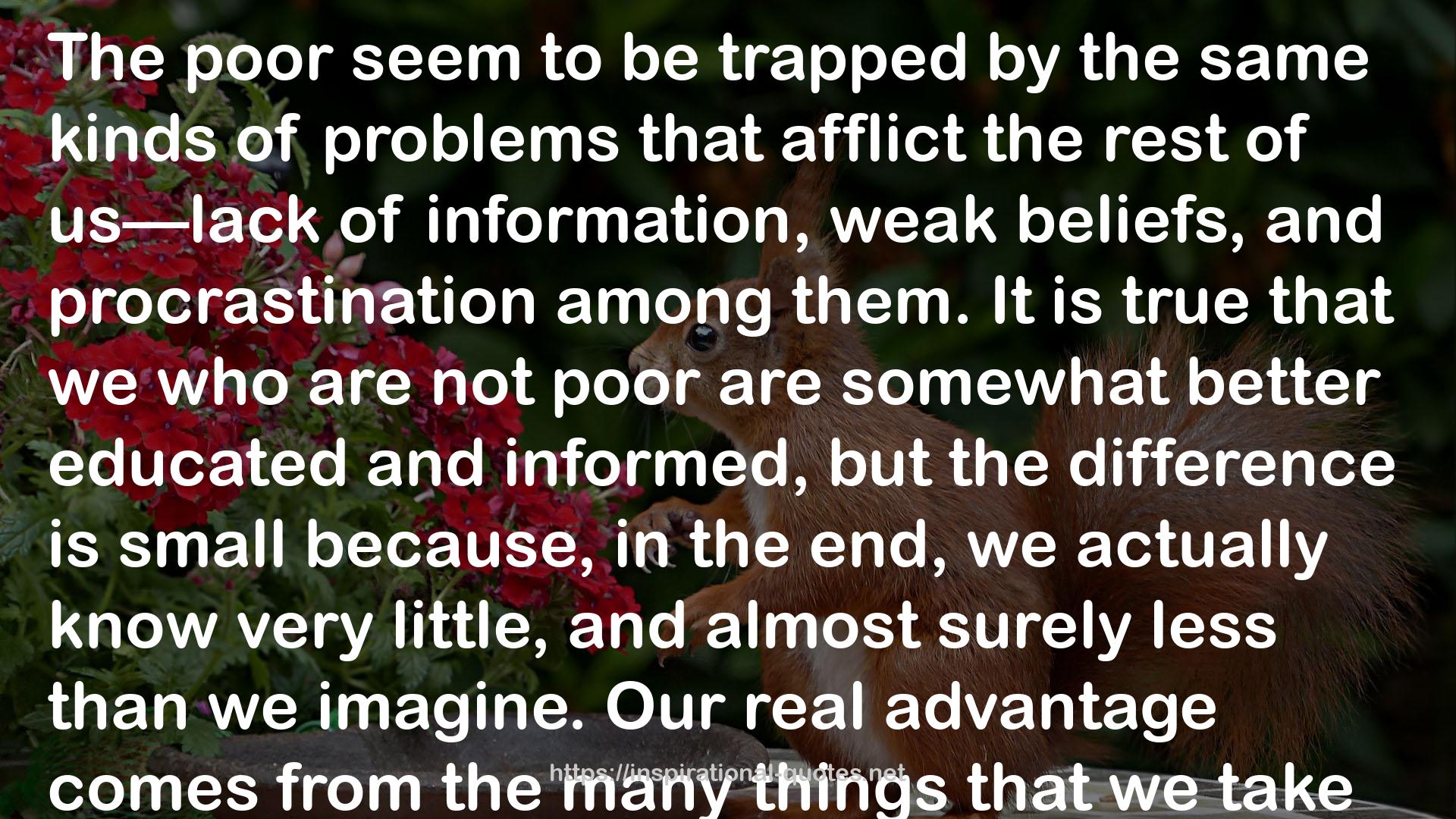" The poor seem to be trapped by the same kinds of problems that afflict the rest of us—lack of information, weak beliefs, and procrastination among them. It is true that we who are not poor are somewhat better educated and informed, but the difference is small because, in the end, we actually know very little, and almost surely less than we imagine. Our real advantage comes from the many things that we take as given. We live in houses where clean water gets piped in—we do not need to remember to add Chlorin to the water supply every morning. The sewage goes away on its own—we do not actually know how. We can (mostly) trust our doctors to do the best they can and can trust the public health system to figure out what we should and should not do. We have no choice but to get our children immunized—public schools will not take them if they aren’t—and even if we somehow manage to fail to do it, our children will probably be safe because everyone else is immunized. Our health insurers reward us for joining the gym, because they are concerned that we will not do it otherwise. And perhaps most important, most of us do not have to worry where our next meal will come from. In other words, we rarely need to draw upon our limited endowment of self-control and decisiveness, while the poor are constantly being required to do so. "
― Abhijit V. Banerjee , Poor Economics: A Radical Rethinking of the Way to Fight Global Poverty
